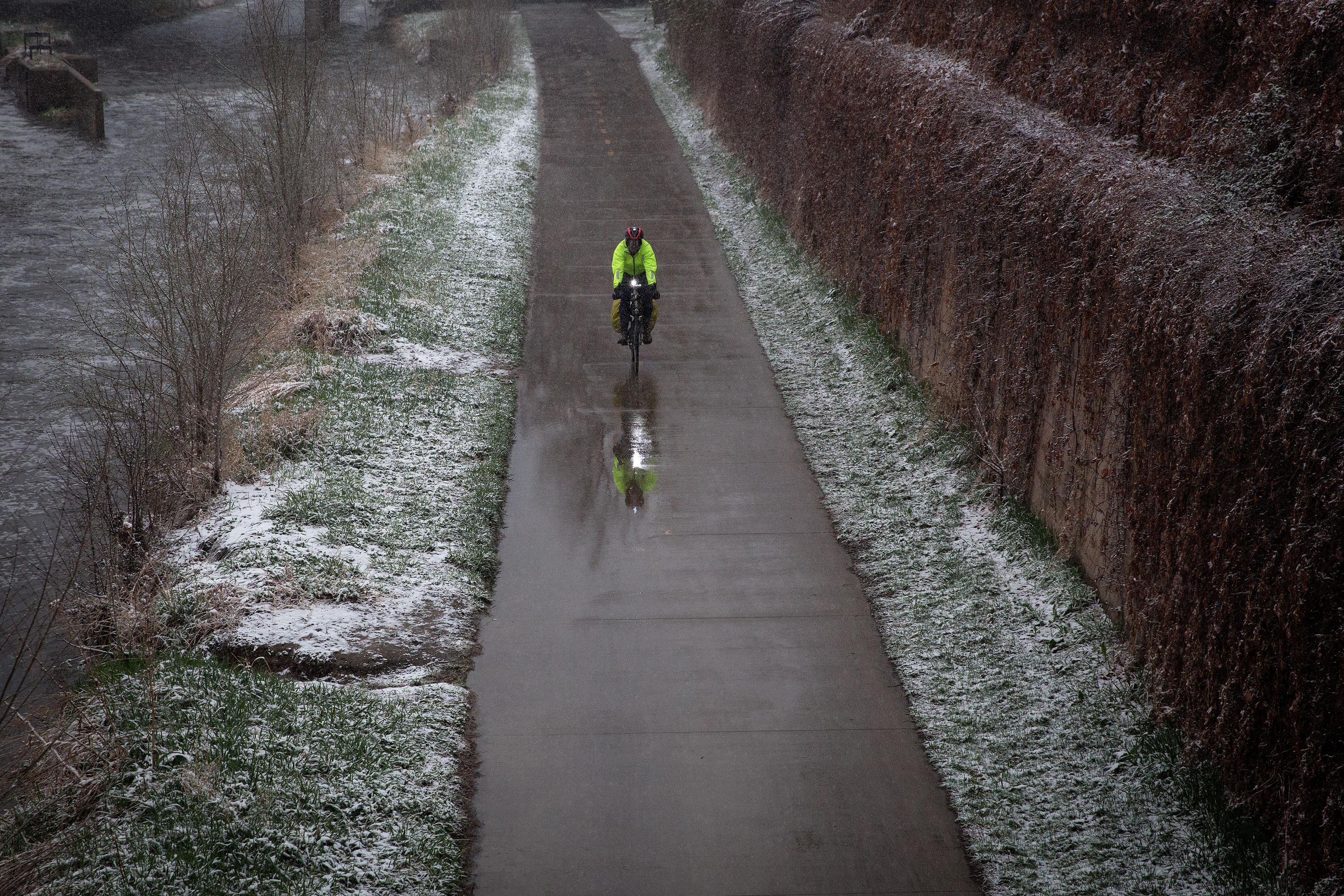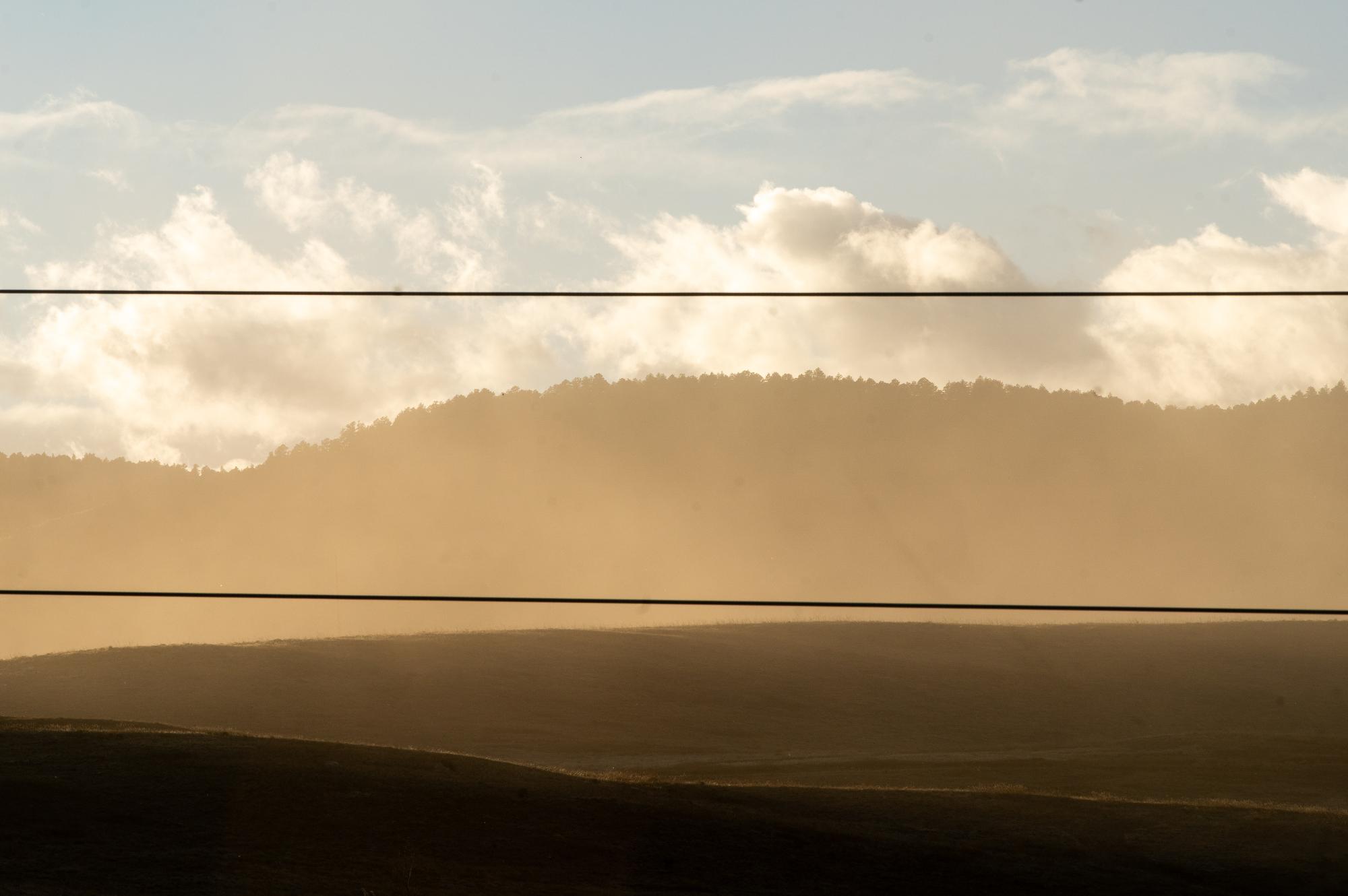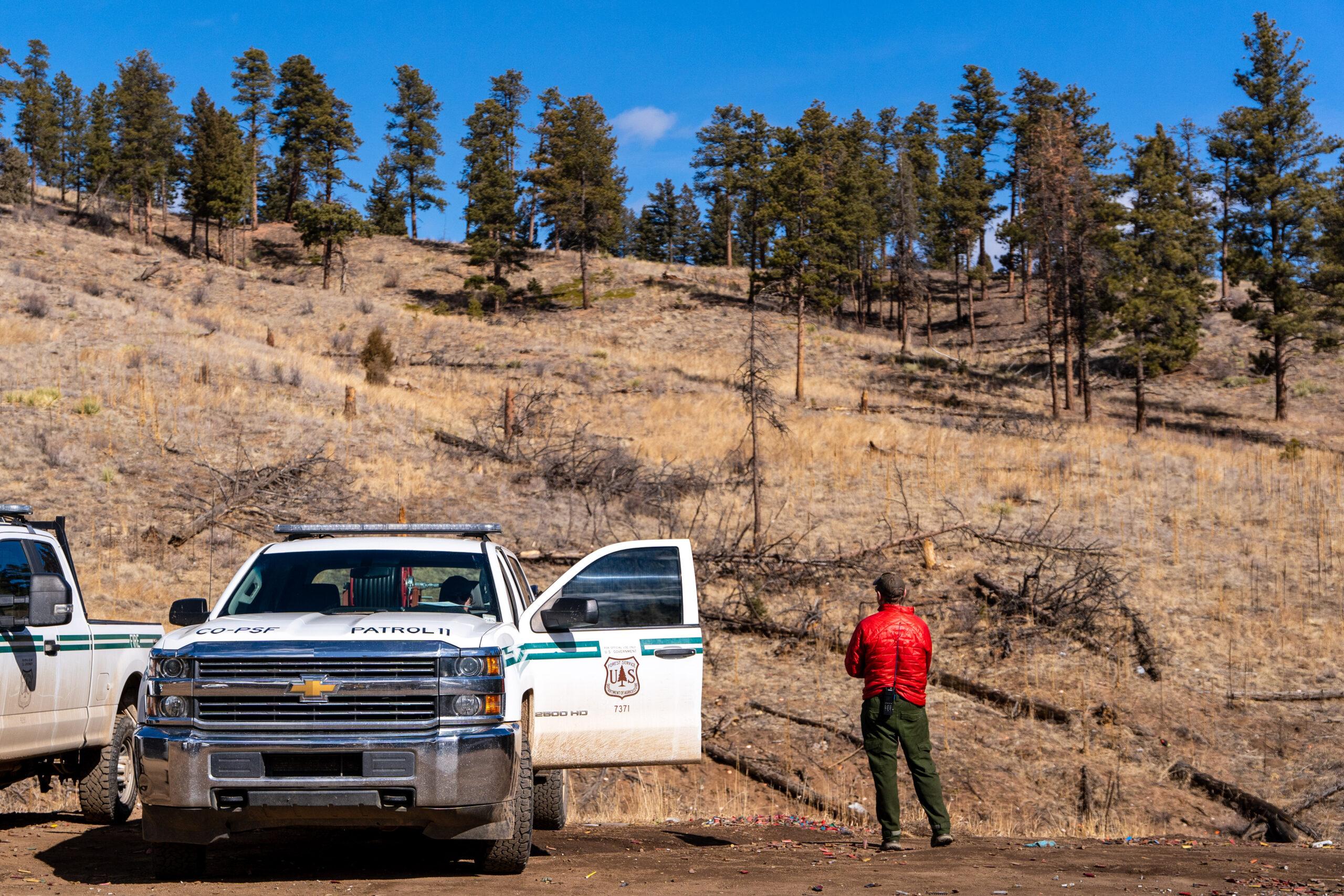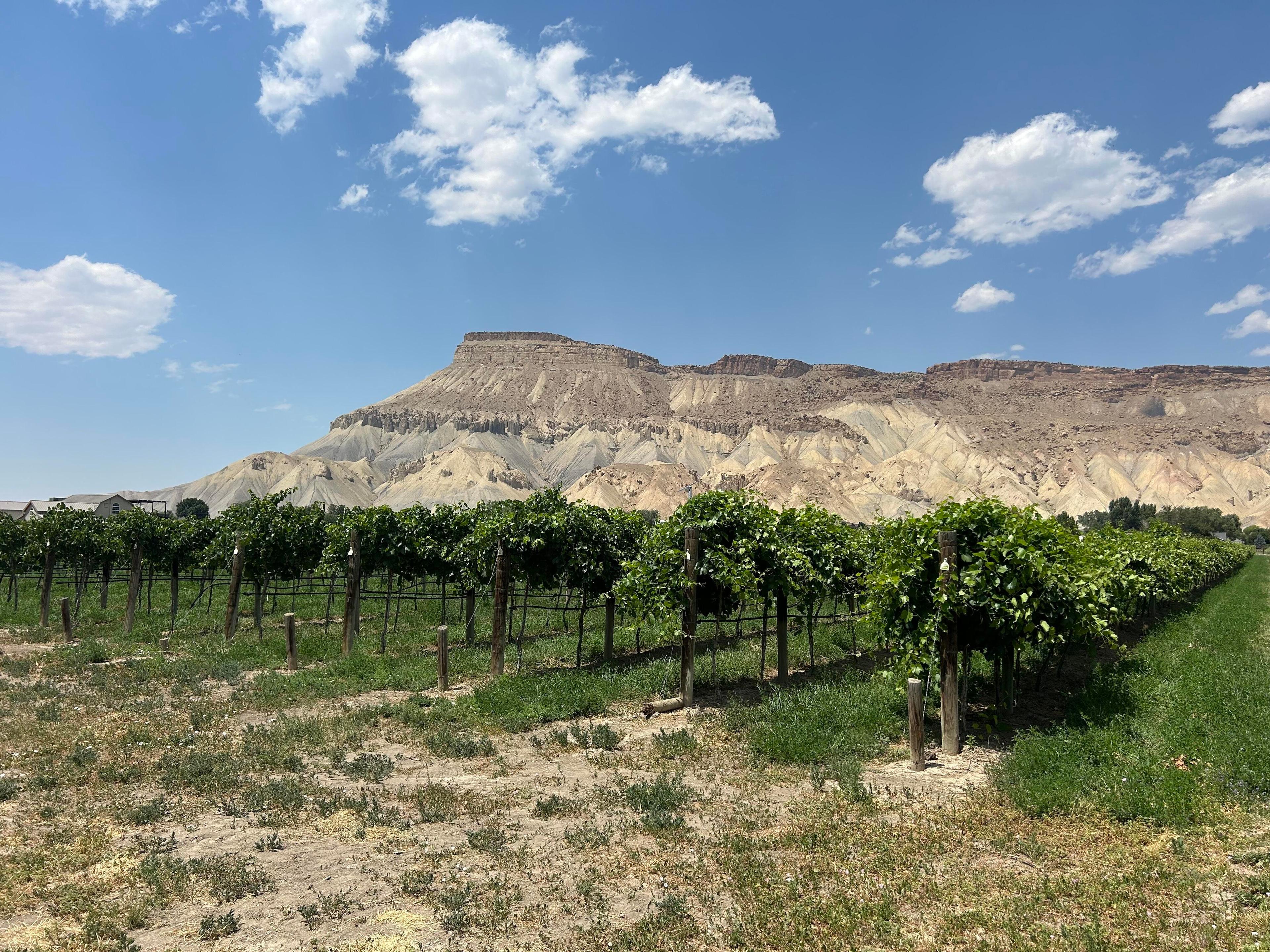
Colorado's many planned power lines have caught the attention of bicycle advocates.
Over the next few years, power utilities are set to build hundreds of miles of new transmissions lines to assist the transition to renewable energy. The planned routes will link metro Denver with far-flung communities, often steering clear of busy roads.
Piep van Heuven, a lobbyist with Bicycle Colorado, sees the build-out as a unique opportunity to add new "power line trails" across the state. Her organization is now helping push state legislation to require utility companies to suggest the idea to local governments, which she said has already proven successful in Fort Collins and Douglas County.
"It's challenging to find new areas for trails and trail systems," van Heuven told lawmakers on a Senate committee Tuesday.
The Senate transportation and environment committee passed the bill on a party-line vote with Democrats in favor Tuesday. The legislation has already been approved in the Colorado House. Without further amendments, it would head to the governor’s desk with the approval of the full state Senate.
If signed, the bill would explicitly allow electric companies to enter into contracts with communities or private landowners to build new trails beneath power lines for cyclists and hikers. Those companies would also be required to compile educational materials about the benefits of power line trails. When a proposed transmission project crosses a community, the power company would need to provide information about building trails along the right-of-way to the local government.
Colorado isn't the first state to consider turning its utility network into recreation highways. Houston first struck a deal with CenterPoint, a utility company serving most of the area, to build bike lanes under power lines in 2014. The process was so onerous the state legislature later passed a bill to streamline the process.
Advocates argue similar legislation could fuel economic development in rural areas across Colorado. Sue McFadden, a green developer from Fort Collins, said she cycled the Katy Trail across Missouri last summer, which follows a former rail line. She said many restaurants and hotels now count on business from riders along the route, a model she said Colorado could adopt along power lines.
Objections to the bill have centered on private property rights. During the Senate committee hearing Tuesday, Wayne Jefferies, a farmer who lives and works near Durango, said he has easements that allow power lines, not people, to traverse his land. He worries adding bike paths could leave him liable if anyone is injured as they cycle through.
"Electricity is good, but trespassers aren't," he told the committee.
Those objections and others drew frustrated sighs from Democratic state Sen. Jeff Bridges, who represents some of Denver's southern suburbs and sponsored the legislation. He said earlier amendments in the state House had clarified no private landowners would be forced to build bike paths across their property.
Austin Vincent, a lobbyist for the Colorado Farm Bureau, added his organization helped write those amendments. He confirmed the most recent version of the bill would not force bike trails on any community or private landowner.
“I do appreciate the sponsor putting this amendment on the bill and quelling our concerns,” Vincent said.








